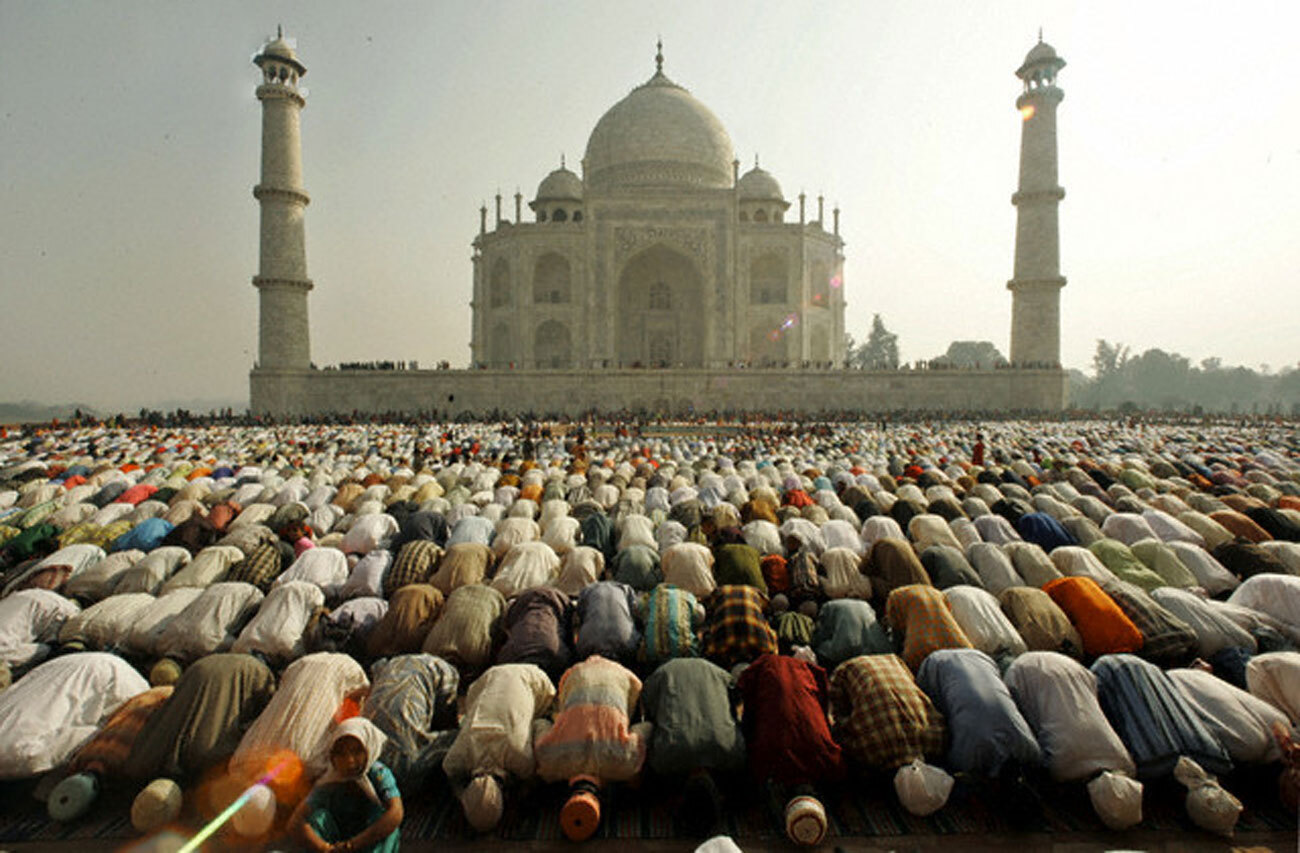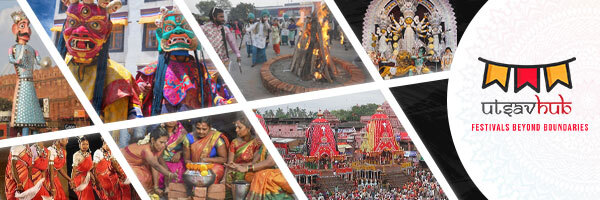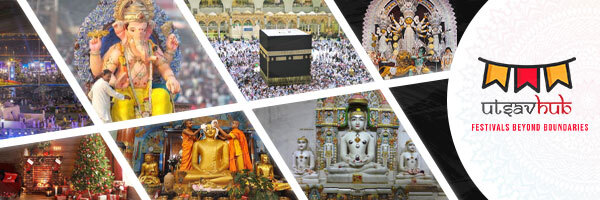
Eid al-Adha The Festival of Sacrifice and Compassion
- utsavhub.com
- 26 April 2024
- Festival Details
- 0 Comments
Eid al-Adha, also known as the Festival of Sacrifice, is one of the most significant Islamic festivals celebrated by Muslims worldwide. It commemorates the willingness of Prophet Ibrahim (Abraham) to sacrifice his son Isma’il (Ishmael) as an act of obedience to God’s command. However, before Prophet Ibrahim could carry out the sacrifice, God provided a ram to be sacrificed instead. Eid al-Adha honours this profound act of faith and submission to the divine will, emphasizing the importance of sacrifice, compassion, and charity in Islam.
Mythology and Significance
The origins of Eid al-Adha are rooted in the story of Prophet Ibrahim’s unwavering faith and obedience to God. According to Islamic tradition, Ibrahim received a divine command in a dream to sacrifice his beloved son Isma’il as a test of his devotion. Despite the immense emotional turmoil, Ibrahim resolved to carry out God’s command, demonstrating the ultimate act of submission and trust in the divine.
Moved by Ibrahim’s unwavering faith, God intervened at the last moment, sparing Isma’il’s life and providing a ram as a substitute for sacrifice. This miraculous intervention symbolises God’s mercy and compassion, affirming the principle of divine providence and the sanctity of life.
Eid al-Adha serves as a reminder of Prophet Ibrahim’s exemplary faith and devotion, encouraging Muslims to emulate his spirit of selflessness, obedience, and sacrifice. It is a time for introspection, spiritual renewal, and acts of charity, as Muslims express gratitude for God’s blessings and reaffirm their commitment to serving humanity.
Rituals and Traditions
Eid al-Adha is marked by a series of rituals and traditions that reflect its significance in Islamic culture:
- Sacrifice (Qurbani): The central ritual of Eid al-Adha involves the sacrifice of an animal, typically a sheep, goat, cow, or camel, in commemoration of Prophet Ibrahim’s willingness to sacrifice his son. The sacrificed animal, known as the Qurbani, is divided into three parts: one-third is given to the poor and needy, one-third is shared with relatives and friends, and the remaining third is retained for the family’s consumption.
- Prayers and Sermons: On the morning of Eid al-Adha, Muslims gather in mosques or open spaces to perform the Eid prayer, known as Salat al-Eid. The prayer is preceded by a sermon (khutbah) delivered by the imam, emphasising the significance of sacrifice, faith, and obedience in Islam. The congregation offers supplications for forgiveness, mercy, and blessings for all humanity.
- Feasting and Celebrations: Eid al-Adha is a time of joyous celebration and feasting, as families come together to share festive meals and exchange gifts. Special dishes and delicacies are prepared, including traditional recipes passed down through generations. The atmosphere is filled with warmth, laughter, and camaraderie as loved ones gather to celebrate the occasion.
- Acts of Charity: Eid al-Adha emphasises the importance of charity and compassion towards the less fortunate. Muslims are encouraged to give generously to those in need, providing food, clothing, and financial assistance to alleviate poverty and hardship in their communities. Charity is seen as a fundamental aspect of Eid al-Adha, reflecting the spirit of sacrifice and solidarity with the marginalised and vulnerable.
Celebrations in Traditional Times
In traditional times, Eid al-Adha was celebrated with great pomp and fervour within Muslim communities worldwide. Families would prepare for the festival weeks in advance, purchasing sacrificial animals, cleaning and decorating their homes, and preparing elaborate feasts to share with relatives and neighbours. The streets would come alive with vibrant decorations, colourful attire, and joyful gatherings as Muslims united in celebration of their faith and shared values.
Celebrations in the New Generation
In contemporary times, Eid al-Adha continues to be celebrated with enthusiasm and reverence by Muslims around the world. While the essence of the festival remains unchanged, modern adaptations have emerged, including community events, charity drives, and digital initiatives that enable remote participation and virtual worship.
Despite the challenges posed by modernity and globalisation, Eid al-Adha remains a cherished tradition that serves as a reminder of the timeless values of faith, sacrifice, and compassion in Islam. As Muslims come together to celebrate Eid al-Adha, they reaffirm their commitment to serving God and humanity, embodying the spirit of sacrifice and solidarity that defines this sacred festival.





